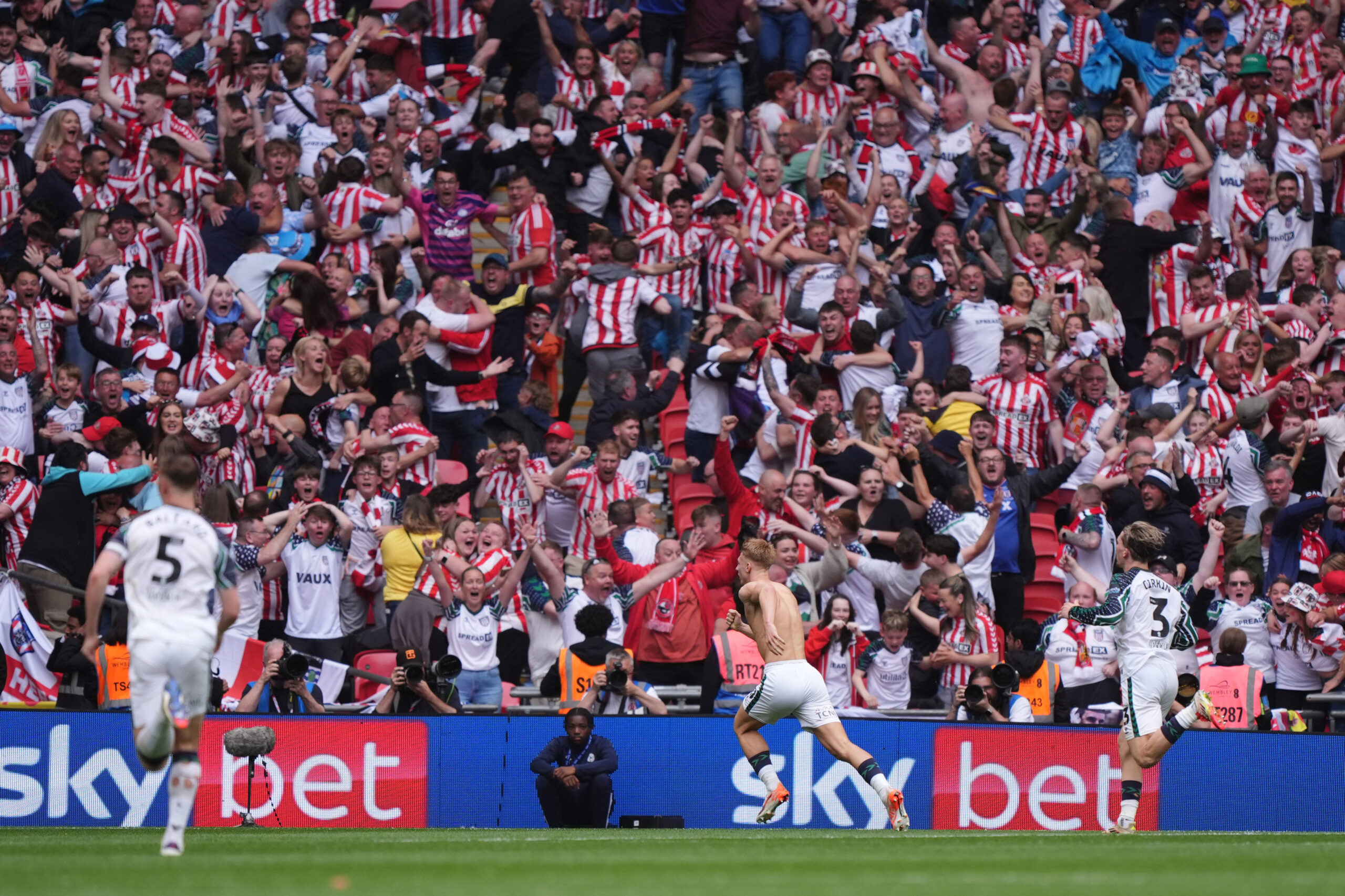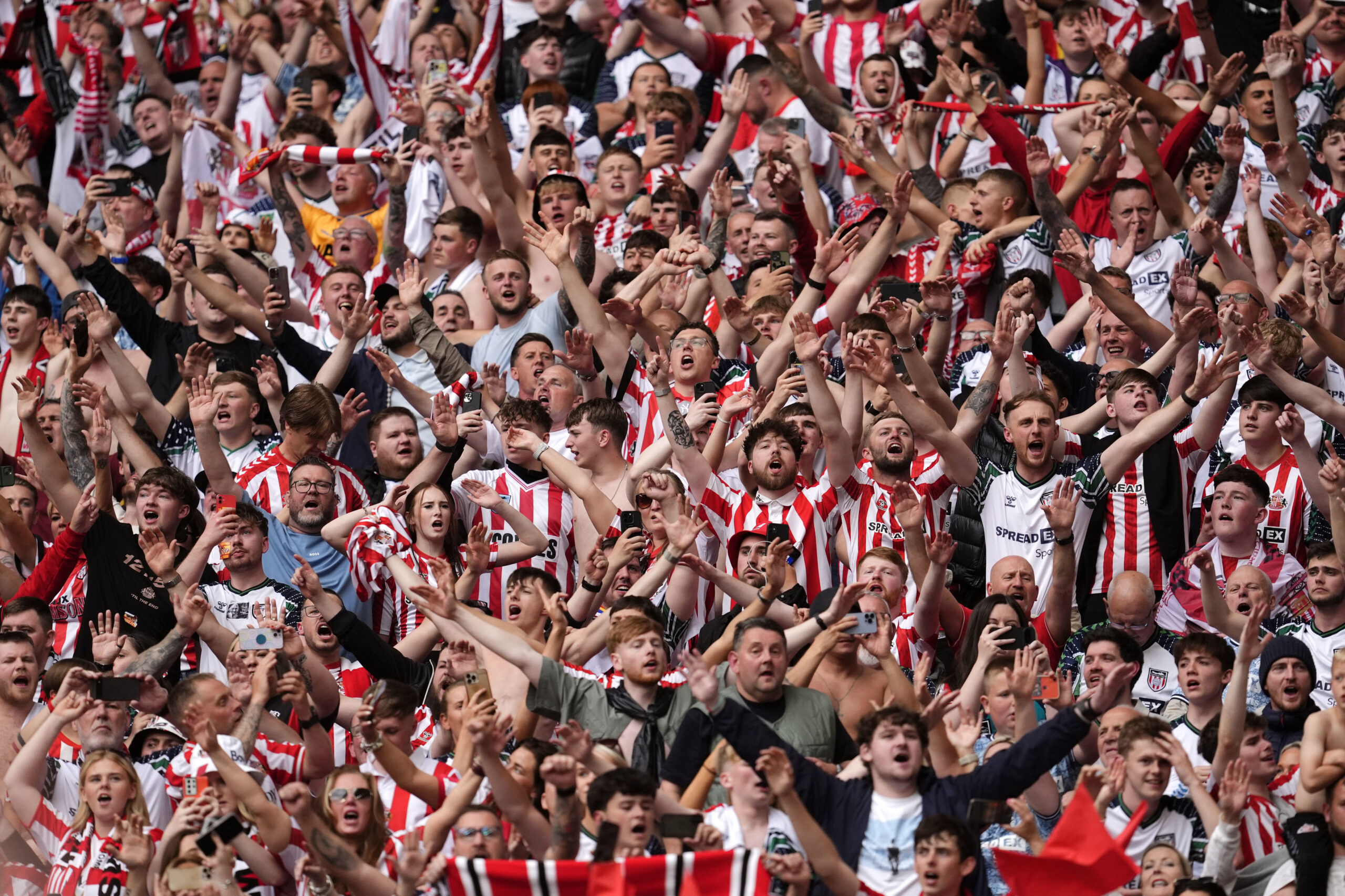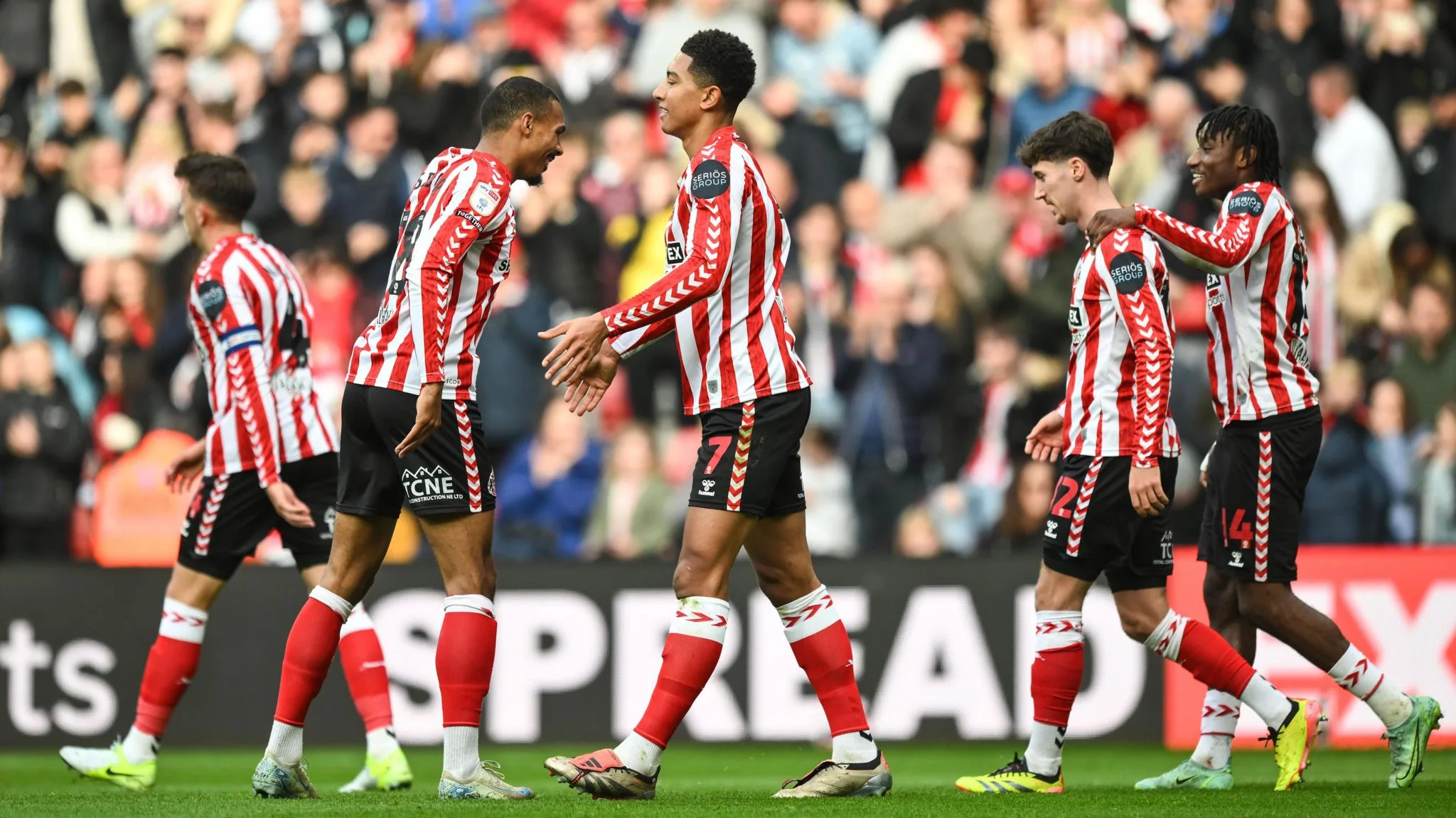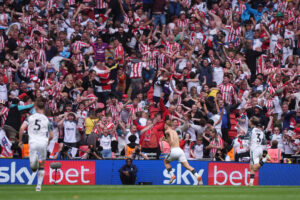As news broke late on Sunday evening that Gus Poyet’s 17-month reign as Sunderland manager was nearing its climax, it all felt rather inevitable.
Poyet, cock of the north-east less than a year ago on the back of a League Cup final and a miraculous dodging of relegation, had clearly lost his way at the Wearside helm. Four league wins all season, an inability to score and some ill-advised comments from the man himself all put paid to a manager who, for much of his reign, was actually rather well liked amongst a fan base that has long grown tired of false dawns.
The horror show that was Saturday’s reversal – nay, destruction – at the hands of Aston Villa saw the Uruguayan’s position become untenable. Some attempted to get to the dugout to lay bare their frustrations face-to-face; others, deflated and weary of yet another struggle against the drop, merely left the ground in despair, caring little for the fact there was still a whole half of football to be played.
Poyet’s fall from grace saw his side stutter out of the blocks and then, as the year turned, collapse completely. The signing of Jermain Defoe was supposed to finally kick-start their season. Instead, it has led to new, bewildering depths.
Many have suggested that the club’s decision to relieve him of his duties on Monday morning was the only feasible choice should Sunderland wish to avoid demotion. Based on form, and Poyet’s baffling decisions in recent weeks – four central midfielders and no left-footed players in the starting XI at Hull City? – it is difficult to disagree.
Yet, this week’s happenings constitute just another in a long line of panic moves instigated by the current hierarchy; a litany of short-term measures that go no further in addressing the underlying troubles that penetrate so deeply into what is slowly becoming a rather rotten manifestation of a football club.
Poyet’s sacking now means Sunderland have yet to last a full season without changing their manager since 2011. Even in the rocky terrain of modern football, that is some feat. What is even more galling is, far from such scattergun decision-making propelling them further forward, they are actually getting worse.
It is difficult to know where to begin, given the sheer number of things that have gone wrong in recent years. Ellis Short’s desire to run the club “properly” – make it self-sustaining, reign in costs without diluting quality – is admirable, but the lack of a long-term strategy to do so is, at best, naïve, and at worst sheer idiocy.
Sunderland’s problems and the errors of their board reach back further than 2013, but it was then that things stepped up a gear. The decision to sack Martin O’Neill was one laden with regret, clearly, but the appointment of his predecessor, or rather, the identity of his predecessor, was shameful beyond belief. In Paolo Di Canio, the Sunderland board appointed a man with questionable morality, not to mention questionable managerial skills. Who can possibly forget that embarrassing day when he was put in front of the world’s media, with everyone outside the Stadium of Light knowing exactly what was about to unfold?
The sight of Sunderland’s Communications Manager shutting down that press conference because the club did not like the tone of questions being asked was pathetic. Their role is to manage communications, to foresee exactly what transpired that day. What did the club expect? They had just hired a man who had, in the past, clearly stated his fascist leanings. In a part of the world known for its dislike, its hatred, of such an ideology. Again, astonishing levels of naivety.
On the footballing side of things, Di Canio was gifted a two-and-a-half year contract and permission to oversee an enormous overhaul of the club. It ended less than a fifth of a way into that contract in tears, as anyone with half a brain could see it would.
Roberto De Fanti was hired as the Director of Football that would ensure no longer would the sacking of a manager lead to a crisis at the club. Except, De Fanti had no real experience of anything remotely to do with being a Director of Football. He was merely a glorified agent who had sweet-talked Short over a London dinner table. He was dumped after just seven months, leaving behind a cavalcade of sub-par footballers and – as plenty of managers had done in the past – a hefty wage bill.
Poyet’s appointment seemed a progressive one, but even here paradoxes were found. Despite his ‘miracle’ of last season, be it by good luck or good management, there were happenings that suggested it was never built to last. Ask anyone with even a rudimentary knowledge of behind the scenes at Sunderland and they would have told you Poyet and Margaret Byrne, the club’s Chief Executive, did not get on. In business terms, their relationship was rather “strained.” Two egos collided. Why, then, with the club fully aware of this, was Poyet given a two-year contract last summer?
That question takes on even greater significance when we consider the arrival of Lee Congerton, another Director of Football, even when it was clear that Poyet wanted as much say as possible in all football related matters. Just as with Byrne, another clash of egos erupted. Congerton won this battle; as ever, the club as a whole lost it.
Make no mistake, this is a shambles of a football club, one overseen by incompetents. Ellis Short’s willingness to pump money in is laudable, but pounds and pence do not excuse the inept manner in which the club is being run. Short himself is a shadowy figure, peering out over the parapet only once the horizon has brightened. No one doubts his love of the club – why on earth else would anyone stick around? – but his methods leave plenty to be desired. So too do the people he lays his trust in.
There is little that comes out of the club nowadays that does not leave a sour taste in the mouth. The letter sent to a local pub prohibiting the display of club flags. The banning of fans who have the temerity to – shock, horror – stand up during the match. The Ji Dong-Won fiasco of last season.
Even Poyet’s sacking was handled in an unprofessional manner. With the entire footballing world aware he was about to be sacked, Poyet was carted out and forced to take one last, pointless training session. Yet another example of the egoism that proliferates at the top of the club – whatever the internal frictions, such a humiliation was wildly unnecessary. So too was the subsequent “leaking” of stories discrediting the former head coach – only a fool would be unable to see that the club are behind such tales.
Moreover, there is the recent decision to relax the suspension of Adam Johnson. Yes, he’s innocent until proven guilty, but are some things not more important than Premier League football? If the outcome of the case is the worst possible for all concerned, then how then will the club feel about having allowed him to return to the fold? A cynical person would suggest this wouldn’t even be a discussion point if the club currently sat with 40 points on the board.
A drinking culture is clearly prevalent at the club. Too many have alluded to it for it to be a falsehood. Why has this not been arrested? Why have the perpetrators not been shipped out? Why isn’t the club doing its utmost to identify just what it is that is so wrong at its heart? Blaming managers is simply an easy get out. It doesn’t wash.
Going back to the overriding problem, ultimately, there is no long-term strategy. Many met the signing of Defoe with acclaim, but it merely represents the haphazard manner in which this club is run. He is 32 years old and being paid a fortune. Where is the long-term plan here? How does he fit into the idea of sustainability? What is the point in buying him when those signed to provide for Defoe and his fellow strikers are clearly not good enough to do so at the top level?
The questions are endless. They’re maddening. They induce rants such as this one. This is a club with opportunities in abundance, and it conspires time and again to squander every chance it gets. Long-term planning is shunned for short-term solutions. The inevitable consequence is the repeated cycle of crises that the club is now firmly in.
There are only so many fires Sunderland can put out before they get burned. Sooner or later, the club must buck their ideas up. They must identify where they want to go, how they want to get there, and stick with it.
If not, they will merely continue to do what they have done for almost half a decade now – go backwards.
NB: ALL views expressed on this website are those of the writer attributed to the piece.





























